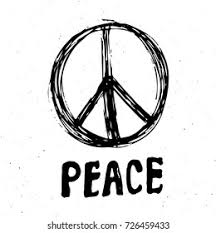
132 countries participate in the Annual Commemoration of the Declaration of Peace and Cessation of War

The 5th Annual Commemoration of the Declaration of Peace and Cessation of War (DPCW) was celebrated on 14 March with over 1 200 people in 132 countries from all sectors of society participating in the webnar.
Heavenly Culture, World Peach Restoration and Light (HWPL), an International Peace Organisation, hosted the webnar as a platform to share their direction and case studies of different sectors cooperating across the world as peach messengers.
Chairman Man Hee Lee, founder of HWPL said the desire to achieve peace is not dampened by the Covid-19 pandemic. “The work to submit the DPCW is under way, even though the Covid-19 pandemic affected the entire global community, which led to a brief stop in the process, our focus and collective determination for building a world of peace stays strong and I am confident no one could reject such a cause,” he added.
Professor Ciaran Burke a member of the International Law Peace Committee (ILPC) that drafted the DPCW said the background of how the DPCW as founded on ‘the conviction that judicial and other dispute resolution measures can replace the role of war with the rule of law’.
“He said the envisioned effect of the DPCW is cumulative to scale up the moral and political responsibility of world leaders by crystallizing the legal obligations of their government thereby bridging the gap between law and politics,” stressed Burke.
Speaking on behalf of the youth advocates, Reuben Sapetulu, Deputy Secretary Agent for the United Nations Youth Association of Zambia said he participated in the delivery of 3 000 peach letters to the Minister of Justice in Zamibia for the DPCW proposal. “My commitment is simply because I agree that the DPCW is an effective way to bring a cessation of war and world peace,” he added.
DPCW reaffirms the peace-based principles contained in various international law documents, such as the UN Charter and the Universal Declaration of Human Rights. It includes principles of peace building such as the prohibition of the use of force, development of friendly relations and peaceful dispute settlement.
It also emphasises international cooperation based on interfaith dialogue and civic participation to create a culture of peace.













































